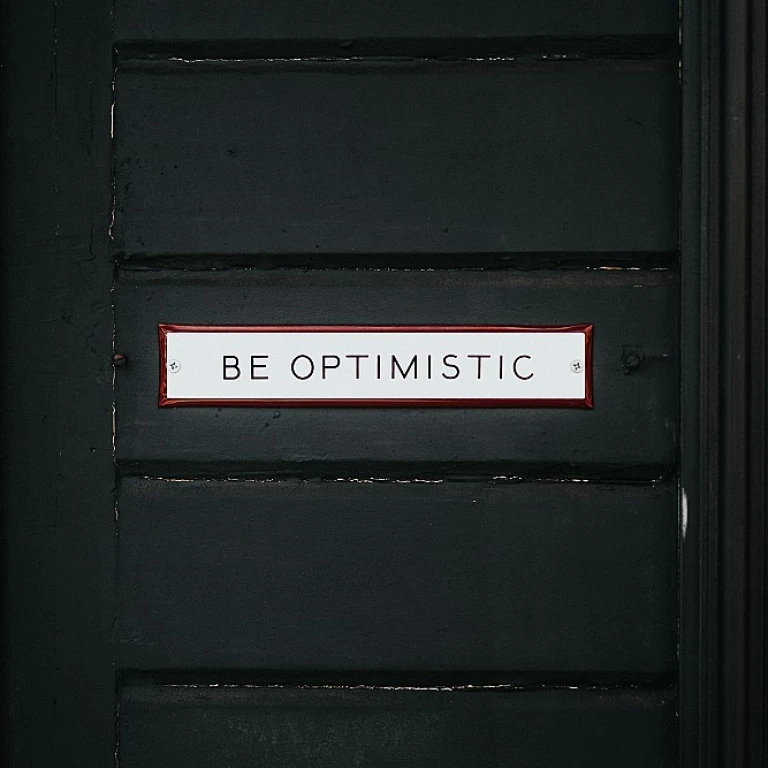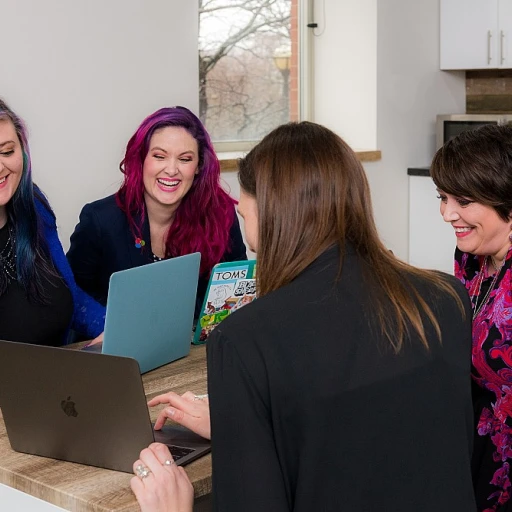Understanding the Interview Process
Getting Familiar with the HR Job Interview Stages
Before you step into the world of HR job interviews, it's crucial to get acquainted with the stages you'll encounter. Understanding these can help you prepare effectively, enhancing your chances of making a great impression. While each company might have its own unique steps, most HR job interviews follow a similar process.
The initial stage often involves screening, where the HR team reviews your application and resume. This is usually followed by a phone or video interview to gauge your basic qualifications and interest in the position. After the initial screening, successful candidates are invited for a more in-depth interview. This could be one-on-one or with a panel, and may include behavioral and technical questions.
Throughout these stages, be prepared to discuss your experience, skills, and how you can contribute to the company's goals. Exhibiting strong communication and interpersonal skills while showcasing your passion for HR is essential.
Preparation is Key
Preparing for the interview starts with researching the company and understanding its mission and values. Familiarize yourself with recent news, key players in the organization, and any changes that may affect the HR landscape. Additionally, review the job description thoroughly to understand the skills and competencies required.
Practising common interview questions and tailoring your answers to highlight your unique skills is a great strategy. While doing this, don't forget to think about your own questions for the employer, which show your interest in the role and company culture.
For more insights and strategies on how to master essential skills for HR interviews, you might find additional resources helpful.
Common Interview Questions and How to Handle Them
Preparing for Common Inquiries
When stepping into an HR job interview, it's crucial to anticipate the questions that may be thrown your way. Preparation is key, and understanding the variety of questions helps you tailor your responses effectively. Here are some common questions and strategies to tackle them:- "Tell me about yourself": This is often an icebreaker. Focus on your professional journey rather than personal details. Highlight experiences and skills relevant to the HR role.
- "Why are you interested in this position?": Align your career goals with what the company offers. Researching the company beforehand helps in crafting a genuine and specific answer.
- "What are your strengths and weaknesses?": Be honest about your strengths, backing them up with examples. When addressing weaknesses, choose something you've actively improved.
- "Describe a challenging situation and how you handled it": Use the STAR method (Situation, Task, Action, Result) to clearly and concisely outline your response.
- "How do you handle conflict in a team?": Emphasize your conflict-resolution skills and ability to collaborate effectively. Mention past experiences where these skills have been applied successfully.
Do's for HR Job Interviews
Preparation is Key to Success
It's important to go into an HR interview well-prepared. This includes understanding the company, its culture, and the specific role you are applying for. Researching these elements helps you tailor your responses and exhibit genuine interest in the organization. Make sure you have a solid understanding of the HR interview process. An excellent resource for getting ready can be found here.Emphasize Relevant Experience
When discussing your qualifications, focus on the experiences and skills that align closely with the HR role. Highlight your ability to handle various HR functions such as recruitment, employee relations, performance management, and compliance. Employers are looking for candidates who can demonstrate their impact in previous roles with specific examples.Showcase Your Communication Skills
Strong communication is crucial in HR roles. During the interview, demonstrate clarity, empathy, and proficiency in both verbal and non-verbal communication. Ensuring your responses are concise yet comprehensive will reflect your potential to handle challenging situations with various stakeholders.Align Your Values with the Organization
Showing that your professional values align with the company's mission and values can significantly strengthen your candidacy. Discussing how your career goals parallel the organization's objectives will highlight your fit within the team and demonstrate your long-term interest.Mastering Follow-Up Techniques
Once the interview concludes, sending a well-crafted follow-up email is a crucial step in leaving a positive impression. Express gratitude for the opportunity and briefly restate your interest in the position, while mentioning a point discussed during the interview. For more insights on crafting winning responses for HR interviews, you can visit our in-depth guide here.Don'ts for HR Job Interviews
Avoiding Common Pitfalls
Navigating the HR job interview can be tricky, and certain pitfalls can be surprisingly easy to fall into. Here's a guide to help you sidestep the most common mistakes candidates make during HR interviews.Overconfidence and Under-preparation
It's crucial to find a balance between confidence and humility. While you want to showcase your skills and qualifications, you don't want to come across as arrogant. Underestimating the need for preparation can lead to overconfidence.- Research Thoroughly: Understand the company’s culture, values, and the specific HR challenges they face.
- Practice Answers: While you shouldn't memorize answers, rehearsing common questions can help you articulate your thoughts clearly.
Neglecting Professional Etiquette
Professionalism is key in any job interview, but particularly so in HR positions where you may be setting the example for workplace behavior.- Punctuality Matters: Arrive a few minutes early to show punctuality and eagerness.
- Dress Appropriately: Err on the side of being slightly overdressed rather than underdressed. This shows respect for the interview process.
Mismanaging Body Language
Your words are important, but your body language can speak volumes. Make sure your non-verbal cues align with the professional image you want to present.- Maintain Eye Contact: This conveys confidence and helps build rapport.
- Posture Counts: Sit up straight and lean slightly forward to show engagement.
- Avoid Fidgeting: This can be distracting and might suggest nervousness or a lack of preparation.
Legal and Illegal Questions
Navigating Legal and Illegal Questions during HR Interviews
When preparing for an HR job interview, it's essential to be aware of the distinction between legal and illegal questions. Interviewers are expected to follow guidelines to ensure a fair hiring process, and understanding these rules can help you navigate the interview more confidently.- Personal Information: Employers should focus on your qualifications and experience rather than personal details. Questions about age, race, religion, marital status, or sexual orientation are generally off-limits in many regions. If asked about any personal information, consider redirecting the conversation back to how your skills and experience align with the job requirements.
- Disability and Health: Questions about disabilities or health conditions should be approached with caution. An interviewer may ask about your ability to perform specific job functions but should not inquire directly about any disabilities unless it's relevant to the job requirements and done in a non-discriminatory manner.
- Citizenship and National Origin: While it's acceptable for employers to ask if you are authorized to work in the country, questions about your citizenship status, country of origin, or native language can be discriminatory. Focus on discussing your eligibility to work legally in the country.
- Financial Status: Some questions regarding financial information, such as credit score or ownership of property, may be deemed inappropriate. It's best to steer the conversation towards how you manage financial responsibilities in a professional setting if this topic arises.
Body Language and Communication Tips
Mastering Non-Verbal Communication
In HR job interviews, non-verbal communication can be just as important as the words you speak. Your body language can convey confidence, enthusiasm, and professionalism—or it can create doubt about your candidacy. Here are some tips to help you master the non-verbal aspect of your interview.- Eye Contact: Maintain steady eye contact with your interviewer to show that you are engaged and confident. However, avoid staring, as it can make the conversation feel uncomfortable.
- Body Posture: Sit up straight and lean slightly forward to convey interest and attentiveness. Avoid crossing your arms, as it can come off as defensive or closed-off.
- Gestures: Use hand gestures to emphasize your points, but ensure they are natural and not overly exaggerated. This helps in making your communication more engaging.
- Facial Expressions: Your facial expressions should match your words. Smile genuinely, and show enthusiasm for the job you’re applying for.
- Pausing and Pacing: Do not rush your responses. Take a moment to consider your answers, which demonstrates thoughtful communication.
Communicating Effectively
Verbal communication goes hand-in-hand with body language. To communicate effectively:- Clarity and Brevity: Provide clear and concise answers, avoiding unnecessary chatter. This shows that you’re organized and respectful of the interviewer’s time.
- Active Listening: Show that you are actively listening by nodding and responding appropriately throughout the conversation. This assures your interviewer that you value their input.
- Tone of Voice: Ensure your tone is professional yet approachable. Avoid sounding too monotonous or too casual.







